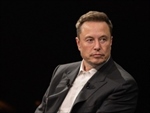Pope Francis

Pope Francis

Pope Francis, born Jorge Mario Bergoglio on December 17, 1936, in Buenos Aires, Argentina, served as the head of the Catholic Church and sovereign of the Vatican City State from March 13, 2013, until his death on April 21, 2025. He was the first Jesuit pope, the first from the Americas and the Southern Hemisphere, and the first non-European pope in over a millennium. Known for his humility and emphasis on God's mercy, he chose to reside in the Vatican guest house rather than the papal apartments and was noted for his less formal approach to the papacy. His papacy focused on reforming the Vatican bureaucracy and finances, addressing social justice issues, and promoting interreligious dialogue. He was also known for his progressive stances on climate change, economic justice, and the death penalty. Despite facing criticism from conservative factions, he remained committed to modernizing the Catholic Church and promoting compassion and inclusivity.
Vance Meets Pope Francis in Vatican After Tense Previous Encounter Over Migration Policy
- Sunday, 20 April 2025
JD Vance met with Pope Francis at the Vatican on Easter Sunday after a brief meeting the previous day, where he was snubbed by the Pontiff and instead met with other officials. The meeting lasted only a few minutes and did not resolve their differences over migration policies. Despite their disagreements, the Pope offered Vance three chocolate Easter eggs for his children, a Vatican tie, and rosaries.




















